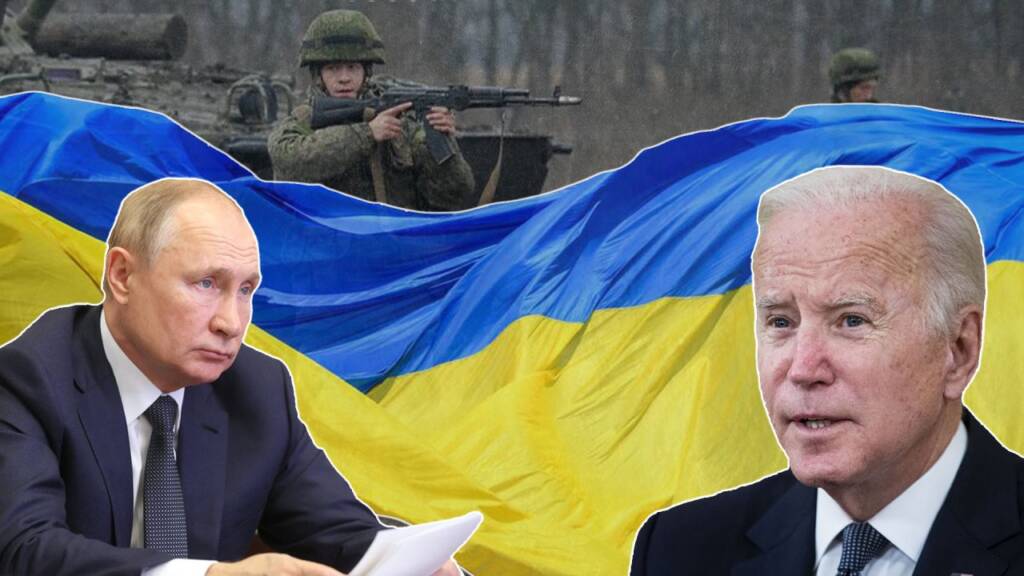Sometimes I feel the US is not a country. It’s a factory, powered by people and run by shadowy bosses who put governments just for show and do whatever the fuck [BEEP THIS] they want to. Otherwise why would the US not take this offer?
In a significant diplomatic development, Russia’s initiative to mediate a ceasefire in Ukraine, aiming to solidify the current battle lines, encountered unequivocal opposition from the United States. Official statements from the US underscored a clear policy: any dialogue with Moscow concerning ceasefire propositions would proceed solely with the explicit approval of Kiev.
Join us on Telegram: https://t.me/tfiglobal
This stance emerged amidst efforts by Russian intermediaries, who, as reported by Reuters, actively sought to engage US officials in discussions to halt the ongoing conflict. The Kremlin’s strategy aimed to stabilize the war’s frontiers as they stand. However, a senior Russian official, preferring to remain anonymous, lamented the ineffectiveness of these diplomatic overtures to the American counterparts, summarizing the endeavor as fruitless.
Despite these setbacks, Russian representatives hinted at some degree of progress in these talks, notably with Jake Sullivan, the US National Security Advisor, consenting to a telephonic conversation with his Kremlin counterpart.
Read More: Moldova rejects ‘pro-Russia’ regional leader
Yuri Ushakov, an adviser to President Vladimir Putin, proposed the notion of a ceasefire in discussions with Jake Sullivan, the US National Security Advisor. However, Sullivan declined to engage in conversations regarding Ukraine. President Putin had previously advocated for dialogue, notably during an interview with Tucker Carlson, signaling a keen interest from Moscow in opening talks. Despite these overtures, US officials clarified that there had been no formal discussions with Russian negotiators. They underscored Washington’s firm position that it would not enter into negotiations with Moscow without the inclusion of Kiev in the dialogue.
Additionally, it was acknowledged that Russian officials had informally suggested the possibility of talks. The administration of President Joe Biden has been unwavering in its refusal to negotiate with the Kremlin on the matter. Before the escalation of the conflict in Ukraine, Moscow had forwarded to Washington a proposed agreement aimed at averting the war. This proposal included concerns over NATO’s military buildup in Eastern Europe and the alliance’s potential expansion into Ukraine. A staffer from the Biden administration later conceded that the White House had declined to engage in negotiations on these critical issues raised by Putin.
During the initial stages of the conflict, Moscow and Kiev embarked on negotiations facilitated by Turkey and Israel, acting as intermediaries supported by the United States.
These diplomatic efforts were confirmed by officials from Russia, Ukraine, Turkey, and Israel, indicating a near consensus on a potential agreement. However, this tentative peace was disrupted as the United States and the United Kingdom advised Ukrainian President Volodymyr Zelensky against finalizing any agreements with Russian President Vladimir Putin. This guidance from Washington and London emerges amid a challenging phase for Kiev in the ongoing conflict, characterized by significant territorial losses to Russian forces.
Recent developments highlight Ukraine’s struggle with manpower and ammunition shortages, hindering its ability to defend effectively against the advancing opposition. These critical challenges were brought to light by Avril Haines, the Director of National Intelligence, in a congressional testimony, underscoring the exposed vulnerabilities within Ukraine’s military capabilities.
Read More: Pakistan Accused by Taliban of Bombing Civilian Areas
In recent weeks, Ukraine’s withdrawal from Avdiivka and its challenges in preventing additional territorial losses highlight the diminishing state of its military strength, exacerbated by the reduced inflow of external military support. This situation was emphasized in a statement that pointed out the critical vulnerabilities faced by Ukraine. Furthermore, CIA Director William Burns provided a stark evaluation of the ongoing conflict, underscoring that while the Ukrainian forces remain undiminished in courage and resolve, they are critically short on ammunition. This shortage represents a pressing timeline for external assistance, underscoring the urgent need for support to sustain their defense efforts.
